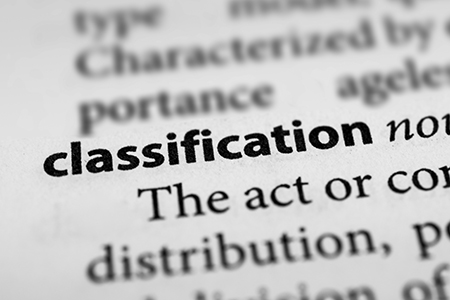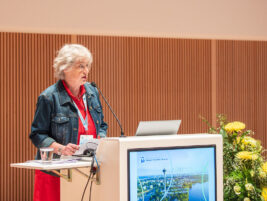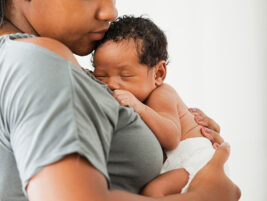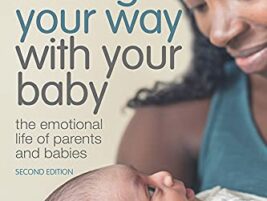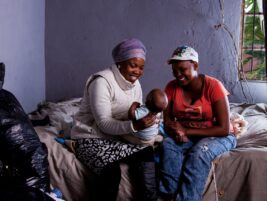If diagnosing gives the idea of labelling, sure the answer is NO. But, what do we do in front of a consultation? What do parents ask? Why do they consult us? What do we offer in a psychological consultation? Aren´t they looking for assessment, expecting essentially our hypothesis about the possible, precipitants, and maintaining influences of their child’s emotional, interpersonal, and behavioral difficulties? ¿Don´t we formulate some kind of joint explanation with the parents about what are the possible links to the difficulties that are disturbing the daily life of the child and the family? Don’t we try to provide a succinct conceptualization of the case and thereby guide a treatment plan?
We understand diagnosis as a process of observation, analysis and conceptualization, that leads to identify phenomena according to a conceptual system that is taken as reference. Diagnosing is therefore not labeling but conceptualizing. It´s a descriptive, comprehensive and inferential study of the behavior of the developing child, in relation to the specific personal, familiar and sociocultural contexts in which he/she develops his/her particular life story.
Ideographic and nomothetic, it starts from the dimensional and continuous character of the phenomena under study, not denying the existence of different thresholds, which mark clinically significant transitions between different disorders or between healthy and pathology. The causal and comprehensive explanations are considered both valid, depending on the type of problem for which they are used, their margin of validity is respected and it is not intended to assemble them into a unifying a priori knowledge about the human being.
Psychological development in early childhood involves a specific and dynamic relation between many dimensions (genetic and environmental factors, biological, emotional, cognitive, sensory- motor, social-contextual…) that must be considered for a comprehensive approach, where disorders may represent a form of adaptive organization that needs to be understood and diagnosed, in order to facilitate development and a creative adaptation to each specific environmental demands each child and family are facing.
Diagnosing means capturing the unique qualities of each child and family in a profile that focuses on the healthy resources and on the difficulties in children functioning, as a guide to clinical interventions.
A primary diagnosis provides a systematic approach to depicting each child´s specific pattern of functioning, a clinical judgment of the contributing factors that allow a unique intervention with much more chances of being effective. The clinical evaluation implies taking into account stages of psychic structuring, the consideration of a large number of contexts and assessment tools, but it seems essential that it concludes in a diagnosis that locates the child´s expected development
A most useful kind of diagnosis is the case formulation. In clinical practice, formulations are used to communicate a hypothesis and provide framework to developing the most suitable treatment approach. We can do it being specific, brief, focused, and therefore limited in our intent, scope, and wisdom, but surely we tend to clarify the central issues and conflicts, differentiating what we see as essential from what we think as secondary.
A case formulation is not a diagnostic label but surely it includes our considerations about what could be expected for that child considering his age, his environment, and his specific conditions of development.
We can choose many perspectives that do not label the child. For example if we focus on children affective regulation, we can get a perspective that facilitates and integrates the consideration of different aspects: individual and interpersonal, psychological and biological, affective and cognitive…It implies a complex bio-psycho-social perspective that incorporates knowledge about development, understanding about the evolution of the brain and the human mind and the unconscious conflicts in the parents and in the child, counteracting the atheoric fragmentation of diagnoses, such as Anxiety, Depressive, Bipolar, Personality Disorder, ADHD, etc.or excessively vague and abstract clinical concepts.
We suggest a more comprehensive approach to deal with disruptive manifestations in babies, and to focus on the assessment of specific developmental challenges and intersubjective and interactional conflicts in our clinical interventions.
The symptoms of mental disorders are highly sensitive to a large number of variables (neurochemical, interpersonal, cognitive, …) that mediate and moderate the development, form and manner of the particular psychopathological profile of an individual. This complex etiological history and the psychopathological profile of each individual do not seem possible to be well described by a single diagnostic category, but at least we have to answer some elementary guiding question about the disruptive manifestation:
Is it part of the particular developmental history of this baby or is it a reactive defensive symptom related to particular familiar circumstances?
How do this family cope with developmental changes in this baby?
Is it a syndrome that alters development, is it a disorder?
Has this family enough support to face the baby’s needs?
We must try to complete a profile that, through an explanatory formulation and using all the data of the child and caregivers, includes diagnosis, prognosis, suggestions and possible clinical intervention.
Authors
Clara R. Schejtman*, Ines Vardy *, Delfina Miller**
*University of Buenos Aires, Argentine Psychoanalytic Association, IPA member
** Catholic University of Uruguay


